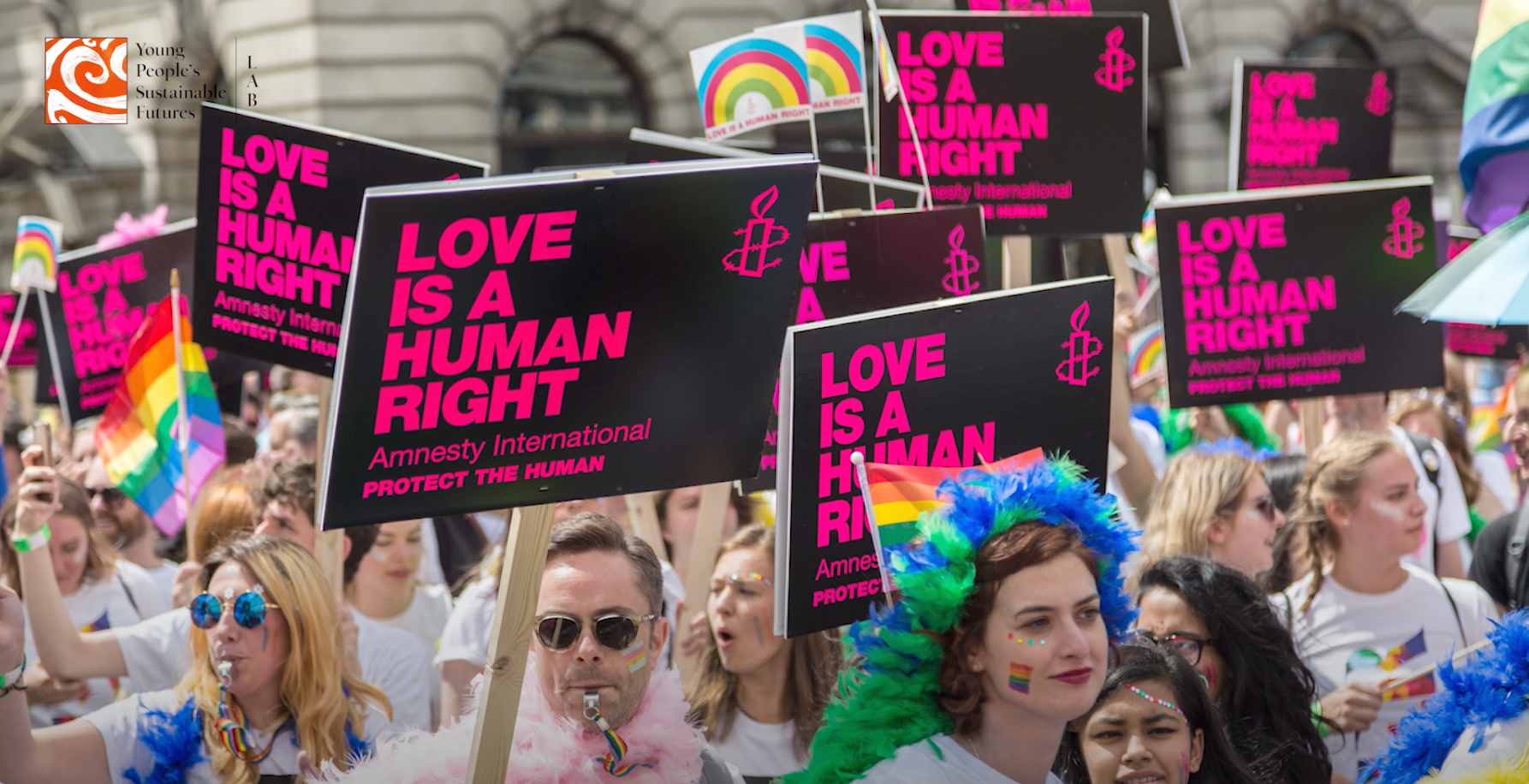
This post provides a link to a video where Ash, a 24 year old young person who identifies as gender fluid, and whose pronouns are ‘they’ and ‘them’, talks about their life in the context of the COVID-19 pandemic, and their anxieties, fears, hopes and aspirations about the future – for the rights of minority groups, the climate crisis, and their employment options.
Ash appears thoughtful and reflective about their life, their community in Melbourne’s inner northern suburbs, and the global issues facing the planet such as inequality, climate change, and employment opportunities. They view these issues as paramount to improving their life and others, with a focus on addressing these issues now rather than later.
Early in this video they discuss the challenges of being unemployed and struggling to find work during the COVID-19 crisis and being someone at-risk for health concerns of COVID-19. Ash had been in “full lockdown since mid-February” before the extended lockdown that metropolitan Melbourne was placed under during the period of July-September 2020 in public health attempts to ‘flatten the curve’ of the 2nd wave of the COVID pandemic.1
Ash remarks “I have been trying to find work…It’s proven quite difficult with the coronavirus situation that we’ve been in…I have barely left my house since quarantine started which has not been good for both my mental and physical health”.
Ash also comments “I think the biggest challenge has been the mental health side of things. I have struggled with depression and anxiety for 12 years now and this last year has been particularly difficult, being isolated and stuck inside my home 24/7”.
COVID-19 has impacted on their support network. Ash discusses how they struggled with being isolated and disconnected. “I lost contact with doctors and my support group because of the Corona virus and because of my anxiety I didn’t follow up with trying to do phone appointments with my doctors”. Further, being unemployed and relying on the government for support has been challenging. They comment that “My only financial support has been from the government, with Centrelink. When I was on youth allowance…that money was not sufficient to live on…when you’re living in a place like Melbourne where rent is so expensive. Over half my youth allowance was going to rent”.
Ash sees an uncertain future, and expresses anxiety about their employment opportunities and the climate crisis. Ash urges the government to address these problems now instead of waiting 5 years. In the meantime, they will continue to attend rallies to address issues of climate change, racism and the treatment of asylum seekers and promote LGBT rights such as supporting the Victorian birth certificate reforms that will allow, for example, “non-binary”, “gender queer” or “agender” to be valid options.
In Ash’s view of the future in 2025, if we don’t protect the rights of minorities and act on climate change, “it’ll be too late”. They remain however, hopeful that we will come together as a society and as a community” to address these issues.
The COVID 19 Recovery Scenario’s for Young People in Melbourne’s Inner North Project
The COVID 19 Recovery Scenario’s for Young People in Melbourne’s Inner North is a collaboration between the UNESCO UNEVOC Centre at RMIT University (in the School of Education), the Inner Northern Local Learning Network (LLEN), the Inner North Youth Employment Taskforce (INYET) and the education, training, business, youth service and advocacy agencies, and local government agencies and authorities that are members of the LLEN and INYET.
Using a scenario planning methodology – see the links here to an outline of this approach – the project aims to develop a range of scenarios for young people in Melbourne’s inner north in 2025.
Figure 1 below provides a summary of the scenarios as they have been developed to this point – and in relation to the intersections and entanglements between the four main themes that have emerged from the research: Health and Well-being; Education and Training; the Economy and Livelihood; Community.
Figure 1: Three scenarios for 2025.

Figure 1: Three scenarios for 2025.
The project involved interviewing more than 50 young people in Melbourne’s inner northern suburbs – in the City of Yarra, City of Darebin and City of Moreland. These young people are stakeholders in their own futures. We aimed to develop innovative ways of providing a space for their voices, and for their voices to have impact in their communities and beyond.
The project conducted these video interviews via the VideoAsk platform, and we are gradually curating and uploading these videos to our YouTube channel.
